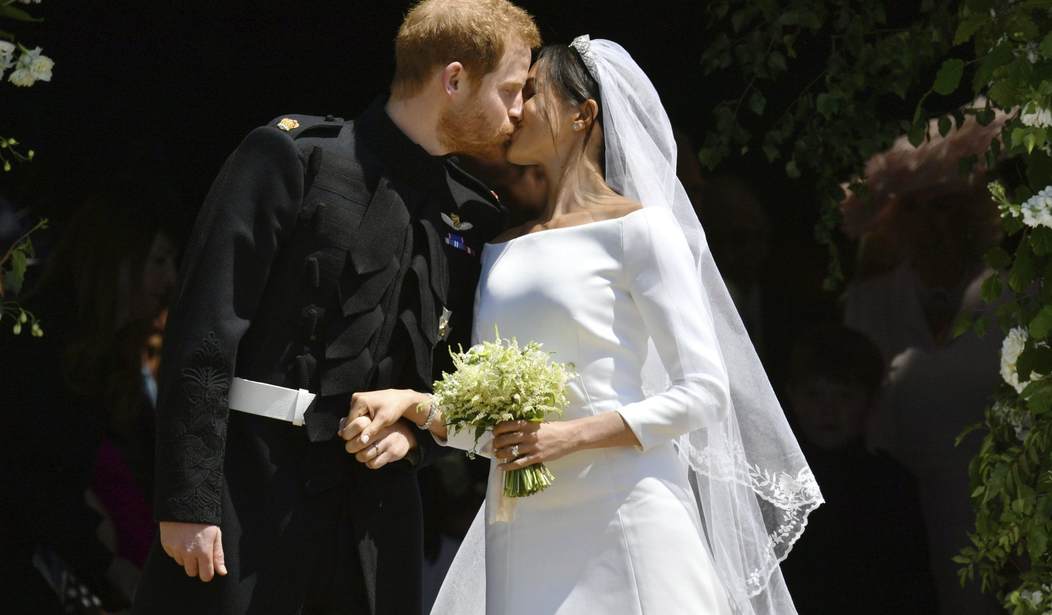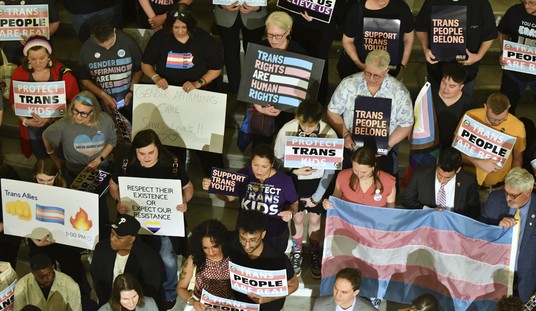In an episode attributed to “those racist evangelical Christians,” a small-town mayor rejected a candidate for city administrator because he’s black. Worse, a city council member defended the mayor, arguing that she was right because race mixing isn’t Christian. Nothing could be further from the truth.
Theresa Kenerly, mayor of Hoschton, Ga., admitted she pulled the resume of Keith Henry from a packet of four finalists “because he is black, and the city isn’t ready for this.”
The worst comments came from Hoschton City Councilman Jim Cleveland, who said Kenerly “might have been right.”
“I’m a Christian and my Christian beliefs are you don’t do interracial marriage. That’s the way I was brought up and that’s the way I believe,” Cleveland declared. He then insisted he wasn’t racist, just anti-race mixing. “I have black friends, I hired black people. But when it comes to all this stuff you see on TV, when you see blacks and whites together, it makes my blood boil because that’s just not the way a Christian is supposed to live.”
The city councilman did not just say he has a bias against interracial marriage and race mixing, he said it isn’t Christian. In reporting this story, Patheos’ Michael Stone baldly declared, “Many conservative Christians are racist,” as evidenced by their support for President Donald Trump. This ridiculous attack is wrong on many levels. While some Christians may be racist, the vast majority are not — and the Bible condemns racism.
Make no mistake: Cleveland is wrong. Dead wrong. While the Bible does not explicitly say, “Interracial marriage is fine,” the idea of dividing people according to race is not biblical.
First, God chose Abraham in order to bless all the nations and the families of the earth through him (Genesis 22:18, 28:14). When God set up the laws for Israel, He encouraged Israelites to welcome the stranger and the sojourner and to “love him as yourself” (Leviticus 19:33). The holy days applied to sojourners in Israel, but they would have to get circumcised in order to keep the Passover. They could offer sacrifices (Leviticus 17:8, 22:18; Number 15:14).
Yet there were divisions between Israelites and non-Israelites — Jews and Gentiles. Gentiles were not allowed into the inner parts of the Temple, for instance. This division is undone in the New Testament.
Throughout the Old and New Testaments, God’s prophets serve various foreigners (Elijah lives with a Phoenician woman for years), and others are welcomed into the congregation of Israel. Notable examples include Ruth the Moabite (who would have been considered ethnically inferior to the Jews but who became an ancestor of Jesus) and Uriah the Hittite (the man whom King David kills to marry his wife, Bathsheba).
God spares Rahab and her Gentile family after she hides the Jewish spies (Joshua 2). God calls the prophet Elisha to heal Naaman, a commander of the Syrian army, of leprosy (2 Kings 5). Then there’s Jonah, who resisted God’s call to preach to Nineveh, fleeing from God at Joppa before eventually relenting and getting angry that the Gentiles listened to him and repented (Jonah 1, 3).
These tribal divisions — similar in many ways to racism — emerge in the Old and New Testaments. Jesus surprises His audiences by serving foreigners.
In Matthew 15 and Mark 7, Jesus agrees to heal the daughter of a Phoenician woman. First, the woman asks Jesus and He does not answer her. His disciples urge Him to send her away, and He says, “I was sent only to the lost sheep of the house of Israel.” The racial tensions become explicit in his second statement: “It is not right to take the children’s bread and throw it to the dogs.”
The woman does not complain or attack Jesus for His seeming racism. Instead, she says, “Yes, Lord, yet even the dogs eat the crumbs that fall from their masters’ table.”
After this, Jesus praises the woman for having great faith. “O woman, great is your faith! Be it done for you as you desire,” he says. Despite superficial racism, Jesus shows profound sympathy for the humble woman.
He only praises two people for great faith in the New Testament: this woman and a Roman centurion. Of the centurion — whom the Jews would have hated in tribal, racist, and political terms — Jesus says, “Truly I tell you, I have not found anyone in Israel with such great faith” (Matthew 8:10).
In the book of Acts, God tells Peter to preach to the Gentiles. God reaches over racial barriers in the case of the Ethiopian eunuch as well (Acts 8:26-40). When racial tensions flared up in the Galatian church, Paul wrote, “There is neither Jew nor Greek, there is neither slave nor free, there is no male and female, for you are all one in Christ Jesus” (Galatians 3:28). Paul was not denying the fact that racial, economic, and gender differences existed, but emphasizing that Christian faith and following Jesus should unite people from disparate backgrounds.
On the issue of interracial marriage, Cleveland is extremely wrong. If God disapproved of interracial marriage, He would have condemned many pairings throughout the Old Testament. For instance, Moses marries a Cushite (Ethiopian, black) woman, causing tension with his brother Aaron and sister Miriam (Numbers 12:1). His siblings didn’t think Moses’ black wife inferior — they thought Moses was being presumptuous and “marrying up.” The anger of God “burned against them” for this (Numbers 12:9).
Similarly, Joseph married an Egyptian. Boaz married Ruth, a Moabite. David’s successor, Solomon, was born from Bathsheba. Her race is not known, but some have speculated that her name suggests she was from Sheba, an Ethiopian country. Her husband was a Hittite, suggesting that she likely was not a Hebrew.
If God disapproves of interracial marriage, why did He defend Moses? More importantly, why did He choose the line of Ruth and Bathsheba for the Son of God to be born (Matthew 1)?
Some conservative Christians may be racist, but biblical Christianity does not support racism. The only part of the Bible that has been used to support race-based slavery (the curse of Ham in Genesis 9) is not used in later chapters to support a bias against black people. When American southerners tried to use the Bible to justify race-based slavery, they twisted the plain meaning of scripture.
Theresa Kenerly may honestly believe the people of her town are too racist to accept a black city administrator, and Cleveland seems to honestly believe Christianity opposes race mixing. If so, he should read the Bible with an eye to the racial cues throughout the text.
Racism is evil, and Christianity should never be twisted to support it. The Bible does not oppose interracial marriage or race mixing, and Christians should know why.
Follow Tyler O’Neil, the author of this article, on Twitter at @Tyler2ONeil.









Join the conversation as a VIP Member